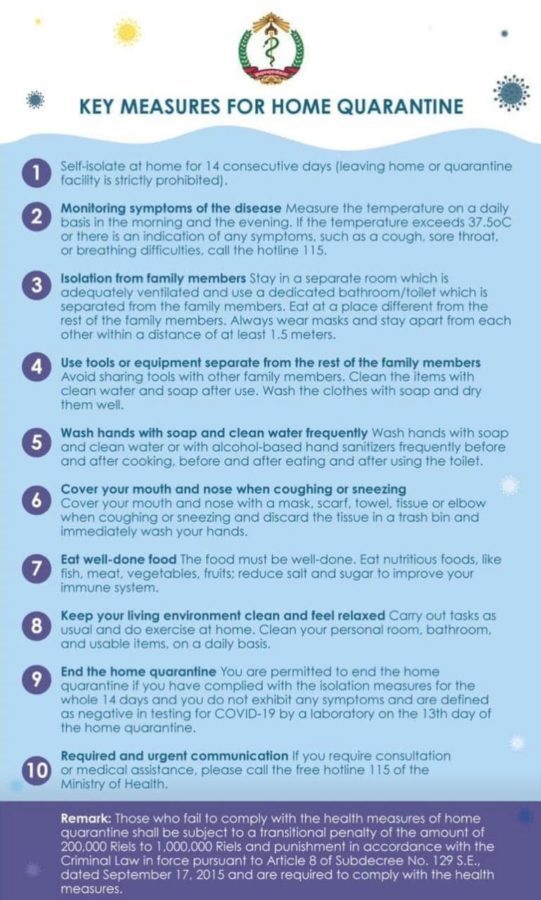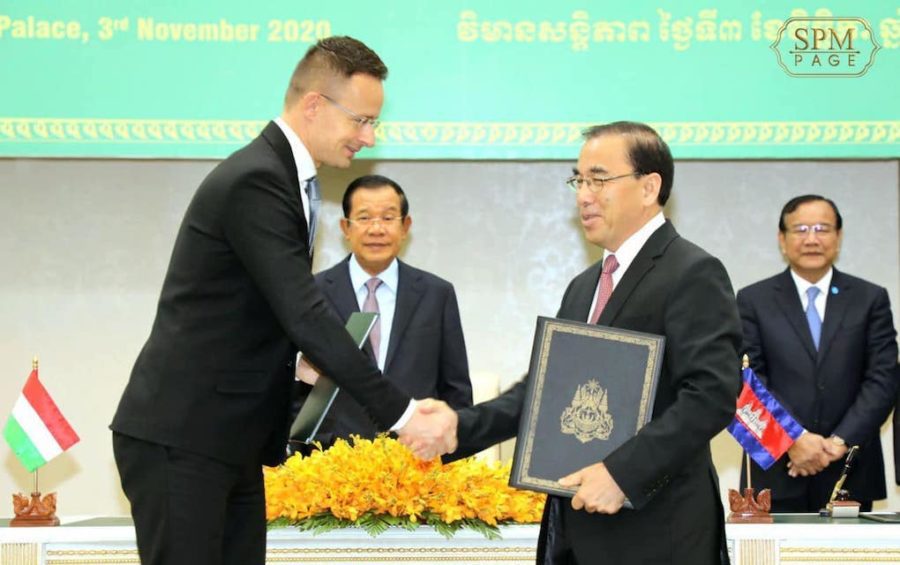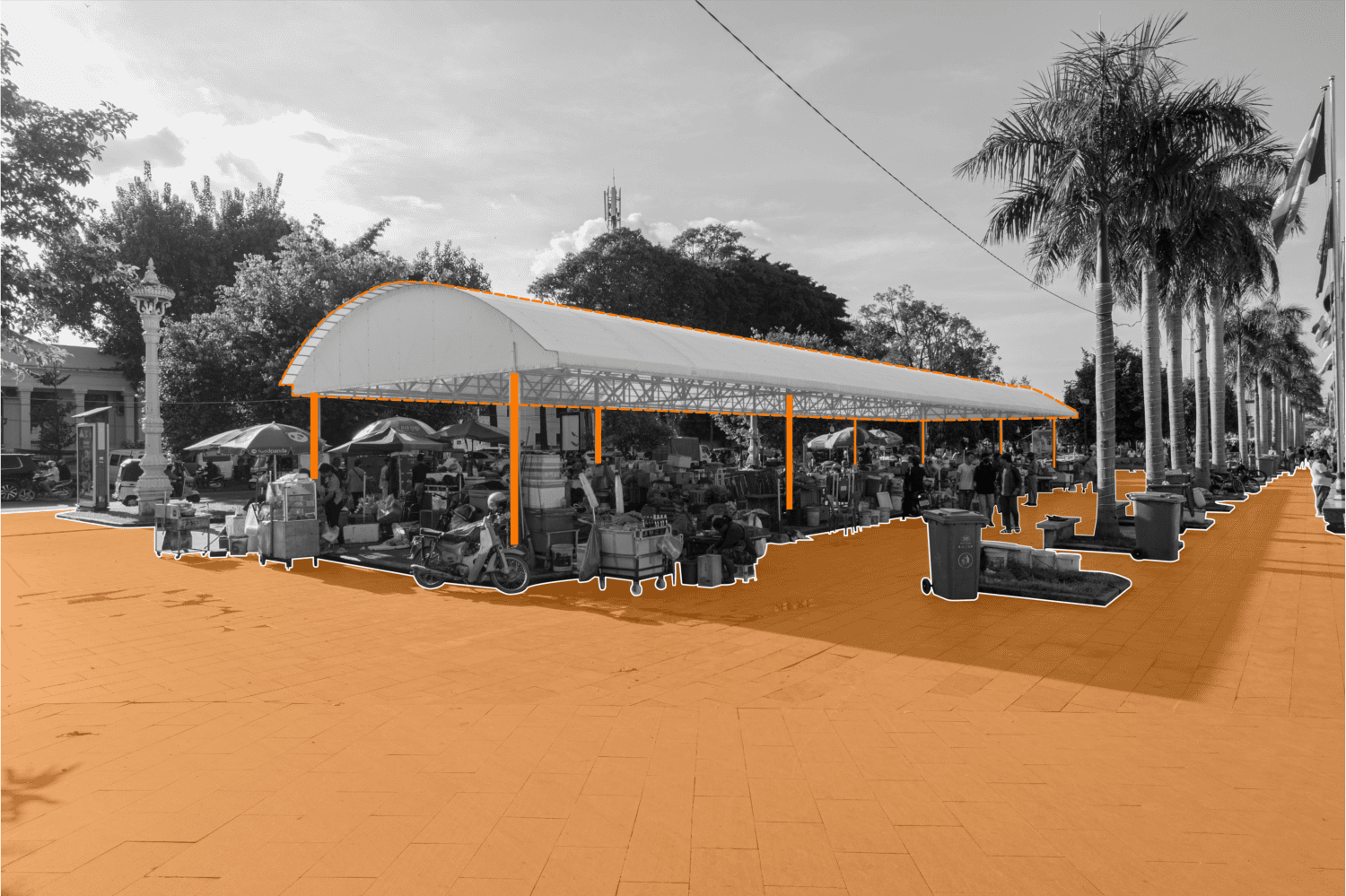 Matt Surrusco is a journalist in Phnom Penh who edits at VOD and New Naratif. He is a former associate editor at The Cambodia Daily.
Matt Surrusco is a journalist in Phnom Penh who edits at VOD and New Naratif. He is a former associate editor at The Cambodia Daily.
Cambodia’s coronavirus situation has changed a lot since November 3. Before last week, the country had reported fewer than 300 positive cases since January. Schools in Phnom Penh and cinemas nationwide were open, with health and safety measures in place. And Prime Minister Hun Sen was not in quarantine.
Then, Hungarian Foreign Minister Peter Szijjarto came to Phnom Penh and all that changed. He could not have fully followed Cambodia’s Covid-19 entry rules, which require testing on arrival and quarantine measures while waiting for results, since he was in the country for less than 24 hours last Tuesday.
He met with a number of Cambodian officials and others during his visit. He was photographed with numerous people in numerous places without a mask or social distancing measures. After signing three agreements with Cambodia, Szijjarto shook hands with at least three senior Cambodian officials, all without a mask. Then, last Tuesday night he flew to Bangkok where he tested positive for Covid-19.
The actions of the Hungarian diplomat and Cambodian officials who apparently went along with requests by the Hungarian delegation and Cambodian Foreign Affairs Ministry to forgo basic health safety protocols have contributed to more than 1,700 people being tested and quarantined after coming into direct or indirect contact with Szijjarto. So far Hun Sen has tested negative, but four others as of Friday have tested positive, including a Cambodian man in Szijjarto’s security detail, a ruling CPP lawmaker, another Cambodian official and Hungary’s ambassador to Vietnam and Cambodia.
I myself am now self-isolating out of an abundance of caution because a colleague’s spouse had contact with a government minister last week after the minister shook hands with Szijjarto. As of Friday, the spouse and minister have not tested positive.
Now that the public has had some time to be understandably outraged about the events of November 3, we need to focus on solutions, specifically in the form of testing, transparency and taking precautions seriously.
Before Szijjarto’s visit, people in the country had gotten lax when it came to social distancing, wearing masks and other standard Covid-19 precautions — myself included. I wear a mask when working outside my home, in the grocery store and in a tuk-tuk, but have caught myself a few times leaving the house without a mask and needing to run back inside.
Since January, when Cambodia identified its first case, most have not seemed to take the virus too seriously, perhaps because the country has reported no deaths. But we need to remember that just because Cambodia has been relatively lucky so far it does not mean the nation is immune to the virus, a significant outbreak or even casualties.
Other than a few weeks in March and April, when Cambodia’s case count first peaked, life has largely gone on as usual in Phnom Penh — even if most restaurants have a bottle of hand sanitizer and an electronic thermometer placed near the entrance, more tuk-tuk drivers wear masks, and some stores require patrons to wear a mask while shopping.
In a country where population density is relatively low compared to other nations in the region, social distancing is talked about more than enforced by authorities and social pressures. We all need to continue living our lives, but also use common sense and remain vigilant.
As of Friday, the Health Ministry reported that less than half, or 819 people, of the 1,734 suspected contacts of Szijjarto have been tested a second time. All have been asked to be tested four times, starting on November 4, with the third tests to begin on Saturday and fourth tests on Wednesday.
As a Health Ministry spokesperson told VOD this week, all those in quarantine need to take personal responsibility, get themselves retested and follow authorities’ advice.
But the ministry also may need to ramp up its resources and staffing, so that as contacts are traced, authorities are working to educate individuals on the importance of following quarantine procedures and being tested more than once. Those in quarantine need to understand that it’s not just about their own health, and whether they are showing symptoms, but also about the health of their family, friends, colleagues and the general public.
Back in April, Li Ailan, the World Health Organization’s representative in Cambodia, emphasized the importance of increased testing and contact tracing while the nation was still in an early stage of the pandemic. Now, when we know that more than 1,700 people may have been exposed, we need to make sure they get tested and quarantine properly while waiting for results.
We also need more transparency and a regular free flow of information from the government, WHO and other institutions working on Cambodia’s Covid-19 response.
There are still a number of unanswered questions about how this latest cluster came to be: Were Szijjarto and members of his delegation tested upon arrival in Phnom Penh or not? If not, why not?
The government owes the public an explanation. We need to know how and why Szijjarto was able to avoid testing and quarantine on arrival, not so we can name and shame those responsible, but so the public can demand that the government fills these gaps in Covid-19 entry protocols and ensures potentially outbreak-inducing leaks in the system do not happen again. The Health Ministry already made some adjustments to entry requirements this week.
In addition, when journalists ask questions of institutions seeking information that will allow the press to more thoroughly explain the situation to the public, and hold the powerful to account, we expect our questions to be met with answers, not further questions, including some accusing reporters of nefarious intentions.
Every interaction with a journalist is an opportunity for the government to show the people that while it may have erred on November 3, it’s doing the right thing now, admitting its mistakes and being a good example by prioritizing public health over saving face.
In a rare instance of self-reflection, the prime minister has even acknowledged (from home quarantine) that the situation was “due to our negligence.” Since November 4, he has repeatedly reminded contacts of Szijjarto to stick to their two-week quarantine.
Looking forward, I hope Cambodia does not experience a wave of local cases. But with community transmission now more possible, I am afraid the country will see an uptick in infections that the health system likely is not prepared to manage.
Having prioritized appearances and diplomatic niceties over public health may yet cost Cambodia its relative isolation from the pandemic. But there is still time to turn this situation around.














